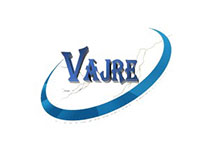Trusted By :


















An Overview- Trademark Registration Online in India
Different Types of Trademark Registration in India
There are different types of trademark registration in India. They are-
Words and service marks
Where the term "marks" refers to any symbol used to identify the products and services of a trade firm or service provider. While service marks denote the type of services offered by a business.
Shape marks
The appearance of the product can help differentiate it from competing products.
Symbols and logos
Logos and symbols are the written figure / design or character, as well as the painted design or figures, that represent the company, service, or product.
Collective marks
When markings are associated with a group of individuals or services collectively, the term "Collective Mark" is used. Although the organisation owns the trademark, it may be used by multiple individuals.
Series Marks
These are trademarks that have been registered for usage prior to or following a chain of items that have a common suffix / prefix / symbol.
The seal of certification
This is a mark that verifies that the company adheres to the product's standards and quality. This would inform the public that a certain company's product has met the certifying body's criteria.
Who can apply for Trademark?
Trademark registration in India is for those who want intellectual property protection. Anyone who needs to have a brand name of their business or product can apply for Trademark Registration.
An Individual (Person)
A non-business individual may also file a trademark application and get trademark registration for a word or symbol that he or she intends to use in the future. When filing a trademark application as a person, the applicant's complete name must be require.
Joint Owners
If two individuals collaborate and decide to file a trademark application, both individuals' names must be included in the trademark application.
Proprietorship Firm
When a proprietorship firm files a trademark application, the application must include the Proprietor's complete name. A business or proprietorship name is not suitable as a person's name. This is because a business or proprietorship name is more akin to an alias for the actual person, and proprietorship firms are not legal entities in their own right. However, if the application includes a proprietorship or business name in addition to the applicant's name, those facts will be captured separately.
Firm of Partnership
When a partnership firm files a trademark application, the names of all partners are essentially required to be included in the application. Because partnership firms are not regarded separate legal entities, the trademark application must include the names of all Partners. If the partnership firm includes a minor, the name of the minor's guardian should also be included.
Limited Liability Partnership
When a Limited Liability Partnership files for trademark registration, the application must be filed in the LLP's name. As an incorporated body, an LLP has its own identity. Thus, the Partner cannot be the applicant alone, as the trademark must be owned by an LLP.
Indian Company
When a private limited company, a one person company (OPC), or a limited company files for trademark registration, the application must be made in the company's name. Because a company has its own identity apart from its directors, the applicant cannot be a director of the company, although the application may be signed and submitted by the director or any other officer allowed by the company.
Foreign Company
In the case of a foreign incorporated entity filing a trademark application in India, the application must be lodged in the foreign incorporated entity's own corporate name. The type of registration, the nation in which the business was formed, and the law under which the company is registered must all be specified. If the foreign company does not have a major place of business in India, the application should include the applicant's address for service in India.
Trust or Society
When filing a trademark application on behalf of a Trust or Society, the name of the Managing Trustee, Chairman, or Secretary of the Trust or Society should be included.
Benefits of Trademark Registration in India
The major benefits of registering your brand are mentioned below:
Legal safeguards:
Trademarks are classified as intellectual property and upon registration can be protected from infringement. Additionally, trademark registration provides an exclusive right to use the trademark in connection with the "Class" of products or services that the brand represents.
Differentiation of products:
Registrations of trademarks are unique to the goods or services they represent. A trademark enables you to differentiate your goods from that of your competitors.
Recognize your brand:
Customers link a product's performance, quality, and features with the business that manufactures it. They often identify the goods by its logo, which is a registered trademark.
Establishment of an asset:
A trademark registration establishes an asset for a business. For accounting and income tax purposes, a trademark is treated as an intangible asset. Trademarks are protected intellectual property that carries a monetary value for the products they represent.
Valuation of businesses and goodwill:
Trademarks registered and linked with your products which increase the value, goodwill, and net worth of your business in the industry. Your trademark communicates your commitment to quality, the unique characteristics of your products, and the objective of your organisation.
Detailed Trademark Registration Process in India
Trademark registration is done by the registry of trademarks. Here are a few steps of brand name registration.
Step 1: Conduct an online search for a brand name that is sufficiently unique.
This is the simplest and most effective method for any beginner to obtain a memorable, modern, and fascinating brand name. Choosing an unique and distinctive brand name is a good option, as the majority of generic names are already taken.
Step 2: Prepare a trademark application.
The following documents must be submitted with the application for online trademark registration:-
Step 3: Submitting a brand name registration application
Manual filing and electronic filing are the two different methods of registration.
If you select 'manual filing,' you must personally deliver and submit your application for registration to the Registrar Office of Trade Marks in major cities throughout India, including Delhi, Mumbai, Kolkata, Ahmedabad, and Chennai. Following that, you must wait at least 15 to 20 days to obtain an acknowledgment of receipt. However, with an electronic filing system, you will get an instant receipt of acknowledgment on the government website. Following receipt of your acceptance, you may begin using your Trademark (TM) symbol alongside your brand name!
Documents Required for Trademark Registration in India
The following documents/details are required to register a trademark in India:
FAQs on Trademark Registration in India
 Reviews
Reviews


Ajay Kumar
7 months ago


Babusona Pandit
11 months ago


Ishika Thathera
a year ago


Dr. Nitin Jha
10 months ago


Neena Singh
11 months ago


Mridulla Bhardwaj
11 months ago


Prince Siddhartha Politically Private
11 months ago


manjeet singh
11 months ago


Navin Kumar
11 months ago


Mrityunjay Singh Hacker
a year ago


kasulla rachana
a year ago


Pooja Vishwakarma
a year ago


Abhi Rawat
11 months ago


Aadi Kumar
11 months ago


Laxmi
a year ago


Deo Naveen
11 months ago